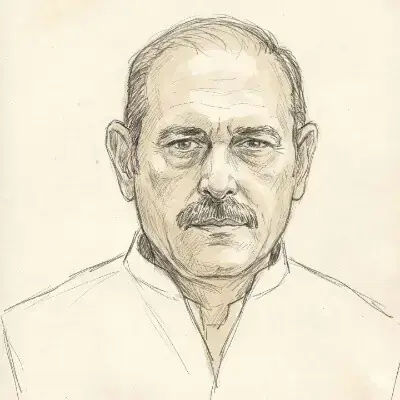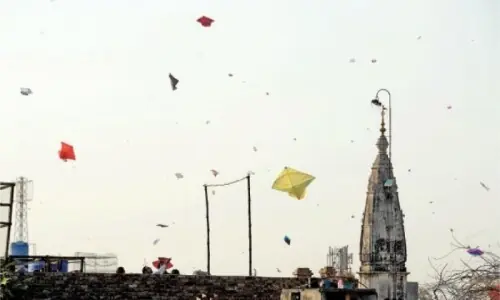PESHAWAR: Afghanistan President Ashraf Ghani called Chief of the Army Staff Gen Qamar Javed Bajwa to share the news about killing of top militant commander of the outlawed Tehreek-i-Taliban Pakistan Mullah Fazlullah in a US drone strike that came as a major blow to the TTP, said a spokesperson for the Pakistan army late Friday night.
Security officials said Mullah Fazlullah was travelling along with five of his commanders when their vehicle was struck by an American drone in Marawara district, killing them all.
The TTP has commented neither on the strike nor about the fate of its leader.
His death is a major setback to the TTP which had suffered similar blows in the past when its militant commanders including Baitullah Mehsud and Hakeemullah Mehsud had been killed in such attacks.
Outlawed militant group yet to confirm the death of Fazlullah who was behind the attack on Malala and many others in Pakistan
A spokesman for the Afghan defence ministry, Mohammad Radmanish, told an international wire service that the fugitive Pakistani militant leader had been killed in a drone strike in Kunar.
A statement attributed to the US Forces-Afghanistan spokesman, Lt Col Martin O’Donnell, said the US carried out a “counterterrorism strike” on Thursday in the border region between Afghanistan and Pakistan targeting “a senior leader of a designated terrorist organisation”.
Mullah Fazlullah, who had come to be known as Radio Mullah in his native Swat before being driven out during a Pakistan military operation in May 2009, had taken refuge in the Kunar province.
The vehicle the TTP commander was travelling in immediately caught fire after the drone strike that occurred at around 11pm (local time) on Wednesday. “Their bodies were reported to have been totally incinerated beyond recognition,” the sources said.
Killed along with Fazlullah were some of his key commanders including his top lieutenant Abu Bakar. Being Fazlullah’s close confidant, Abu Bakar almost always accompanied his leader. His presence amongst those killed reinforced the speculations that Fazlullah, too, was among the dead. Other commanders killed in the strike were Imran Swati, Sajid Swati and Umar Swati.
The 44-year-old Fazal Hayat had risen through the ranks, from the ameer of the Tehreek-i-Taliban Swat to the ameer of the main TTP, to succeed its chief Hakeemullah Mehsud, who was killed in a drone strike in November 2013. Fazlullah was behind many attacks in Pakistan including an assassination attempt on Nobel Laureate Malala Yousafzai in October 2012.
Fazlullah has been amongst the key Pakistani militant commanders who had taken refuge in the south and south-eastern Afghan provinces of Nangrahar and Kunar.
His death indicates renewed cooperation between Pakistan and the US. Only a day before the drone strike, Pakistan army chief Gen Qamar Javed Bajwa had visited Kabul where he met the top Afghan military and political leadership. He also met the commander of the Resolute Support Mission (RSM), Gen John Nicholson, to discuss peace and security in the region.
It was not immediately clear as to who would succeed Fazlullah to take over the rein of the outlawed TTP. His two sons are already dead: Abdullah Swati was killed in a drone strike in Jogam, Afghanistan in March 2018, while his other son Najeebullah Swati blew himself up in a suicide attack in Bannu in February 2017. His 10-year-old son Saifullah and daughter Hafsa are alive.
The security officials said Omar Rehman alias Fateh of Matta Swat, who along with Fazlullah had taken shelter in Kunar, is the likely candidate to succeed his leader.
US defence officials on Friday said they could only confirm that one of their drones had targeted Mullah Fazlullah but various US media outlets confirmed that TTP chief was killed.
The Voice of America radio earlier on Thursday reported that Pakistan’s most wanted terrorist was killed in a US drone strike in Kunar province.
Afghan president calls Bajwa
Afghanistan President Ashraf Ghani called Chief of the Army Staff Gen Qamar Javed Bajwa and shared the news about killing of Mullah Fazalullah in a drone strike in Kunar.
According to a statement issued by the Inter-Services Public Relations, he was hiding inside Afghanistan since 2009.
“Killing of the TTP commander is a positive development. It gives relief to scores of Pakistani families who fell victims to TTP terror including the APS [Army Public School] massacre,” it added.
It said that the Pakistan military leadership always maintained that a cooperative and coordinated approach was the best response to the menace of terrorism.
Published in Dawn, June 16th, 2018


































